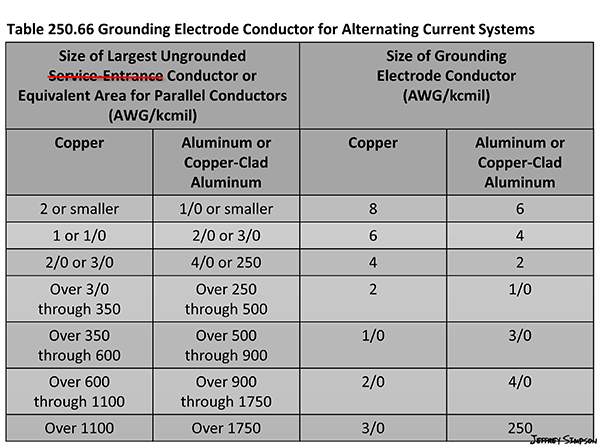Table 250.66 Grounding Electrode Conductor for Alternating-Current Systems.

Code Change Summary: Clarifications were made to NEC® Table 250.66.
NEC Table 250.66 is used for sizing grounding electrode conductors for alternating current systems. As defined in Article 100, the Grounding Electrode Conductor is used to connect the system grounded conductor or the equipment to a grounding electrode or to a point on the grounding electrode system.
In past editions of the NEC®, the largest ungrounded service entrance conductor was used to determine how large the grounding electrode conductor should be. In the 2020 NEC®, the term “service-entrance” was deleted from the table since this table is also used to size grounding electrode conductors for buildings or structures supplied by feeders or branch circuits, or at a separately derived system of a grounded or ungrounded ac system.
The grounding electrode conductor is not intended to carry current under normal conditions, but it provides a path to the grounding electrode in order to limit voltage caused by things like lightning, power line surges, or unintentional contact with higher-voltage lines. Since the grounding electrode conductor is not meant to carry current under normal conditions, it is not sized the same as conductors that are intended to carry current continuously.
When using the table, the size of a grounding electrode conductor is determined based on the size of the largest ungrounded conductor. For a service, sometimes, the utility company installs the service entrance conductors after the electrician is finished and until then, the electrician has no clue what size service entrance conductors will be installed.
Note 2 under Table 250.66 makes it clear that if there are no service-entrance conductors present, “the grounding electrode conductor size shall be determined by the equivalent size of the largest service-entrance conductor required for the load to be served”.
There are some grounding electrodes that are not sized from Table 250.66. Under certain circumstances, ground rods, ground pipes, ground plates, concrete encased electrodes and ground rings may be permitted to be smaller than the values in Table 250.66 according to Section 250.66(A) through (C).
Underground water pipe electrodes and metal in-ground support structures covered in 250.52 are always sized from Table 250.66.
Below is a preview of the NEC®. See the actual NEC® text at NFPA.ORG for the complete code section. Once there, click on their link to free access to the 2020 NEC® edition of NFPA 70.
2020 Code Language:
Refer to the image of revised Table 250.66.